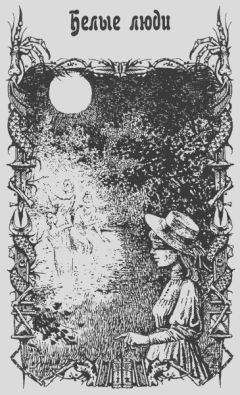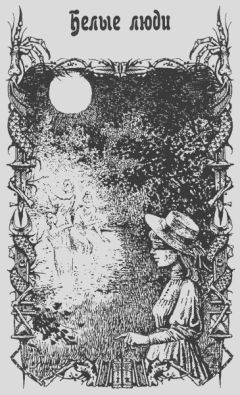Barbara Hambly - Dead water
На электронном книжном портале my-library.info можно читать бесплатно книги онлайн без регистрации, в том числе Barbara Hambly - Dead water. Жанр: Прочее издательство неизвестно, год 2004. В онлайн доступе вы получите полную версию книги с кратким содержанием для ознакомления, сможете читать аннотацию к книге (предисловие), увидеть рецензии тех, кто произведение уже прочитал и их экспертное мнение о прочитанном.
Кроме того, в библиотеке онлайн my-library.info вы найдете много новинок, которые заслуживают вашего внимания.

Barbara Hambly - Dead water краткое содержание
Dead water читать онлайн бесплатно
“I'll do it for five hundred,” replied January. “In advance, whether we succeed or fail—plus the expenses of the journey. And I want your word as a gentleman”—he tried to keep the irony out of his voice—“that if either of us gets into trouble, you'll get us out of it.”
The banker's sandy-red brows pulled together in momentary puzzlement. Of course a white man wouldn't understand, thought January. Certainly not a New Yorker, coming from a town that had a thriving free black population that didn't live looking over their shoulders, worrying about whether they'd be kidnapped into slavery.
“We'll be traveling through cotton territory,” January illuminated for him grimly. “We'll be in country where nobody's even heard that there are free colored people or that there can be black people who aren't somebody's property. Where nobody's going to look too closely at a black man's ownership papers if he turns up on some auction-block for cheap, and where no local sheriff is going to go against one of his constituents if that constituent has a newly-bought slave who claims he's a kidnapped freeman.
“If we get in trouble,” January concluded, “I'm trusting you to buy us free. Just as you're trusting me not to breathe a word about your bank having eight million banknotes in circulation backed up by the change in your pockets. Sir.”
He didn't even mention the problems he would face, in the event of “trouble,” in getting word back to Granville that he or Rose needed help. In the low water of summer, it could take nearly a week for a letter to get to New Orleans from Vicksburg, two weeks from Memphis—longer, if the boat got tangled up on a bar or tore out its paddle on a snag. A week in the hands of slave-dealers or professional kidnappers could be an eternity, and once in the deep heartland of Missouri or Tennessee, it was almost unbelievably difficult for a black who didn't know the area to travel.
But he said nothing about that. Only watched Granville's eyes, counting the seconds of silence before the banker replied. An immediate Of course, that goes without saying! would have been his signal to renege at once and to get Hubert Granville the hell out of his parlor as quickly as he could. A reply that unthinking meant that Granville had no intention of laying out so much as ten cents to purchase his freedom, much less the fourteen hundred dollars a prime cotton-hand, six feet three inches tall and massively built, would fetch on the open market.
But Granville thought about it, asking himself—January could see the infinitesimal movement of his kid-gloved fingers as he toted up estimates—if it was something he could actually afford. “How much danger is there of that?” he asked finally.
“Some,” said January. “We'll be safer on the boat than ashore. But if Weems off-loads those trunks somewhere along the way, we'll have to follow. I won't know how much danger there'll be until we see what we're faced with on board. Some of it depends on how desperate Weems is, or will become if he realizes he's being dogged. We need to know that you'll stand by us.”
Granville rose, massive and only inches shorter than January himself, and held out his hand. “I'll stand by you,” he pledged. “And in addition to the thanks of the bank officers—most of whom don't know and won't know that there's a problem—you have my personal thanks. I won't let you down.”
“And if you believe that,” remarked Rose, standing on the front gallery minutes later as they watched the banker disappear down the darkness of Rue Esplanade, “as your sister Olympe would say, you and I both deserve to spend the rest of our lives picking cotton in Tennessee.”
Her voice was light, but he could tell she was still furiously angry, and he knew he could not say to her, I won't let you come.
Behind those words, if only in their hearts, lurked the reply: It's your fault we're in this mess.
Besides, he knew he'd need all the help he could get.
Far off, thunder rumbled in the tar-black darkness and flashes of heat-lightning flickered over the lake. Here beyond the range of the French town's iron street-lanterns, the blackness was absolute. Across Rue Esplanade, where the small houses of Faubourg Marigny lay hidden among the trees, the roar of cicadas beat like a metallic sea.
January took a deep breath. “Rose, I'm sorry.”
“You're sorry that you disregarded me when I pointed a pistol at your head and said, Put it in the Commerce Bank or I'll shoot? We both made the decision, Ben.” She sighed, and put her arm around his waist. “It will, however, be some time before I can bring myself to be polite to your mother again.”
Soft laughter shook him, and he cupped her face in his hands, kissed her gratefully, then again with slow, deep enjoyment of her lips. In the darkness she had an animal sensuality completely at odds with her daylight persona of a schoolmistress and scholar.
A mosquito whined in his ear, and they parted while he slapped at it. “Will you do me a favor, Rose?” he asked as they retreated into their bedroom from the gallery and so through to the parlor. One of the candles had gone out, and the other was guttering again. Rose fetched the candle-scissors and January cracked his shins against Cosette's small trunk, waiting by the door.
“Write to Dominique.” He named his sweet-natured younger sister who was so often in and out of the house. “Ask her if she'll take Cosette for a few days. You know they get along well, and that maid of Dominique's has her hands full with the new baby. Then write to Cosette's grandmother, Serafine Poucet, in Spanish Fort.”
Taking the candle, he walked through to the dining-room and into the pantry, where a supper of cold chicken and bread waited for him in covered dishes. He ate a few hasty bites standing, knowing that it was nearly midnight already, and the later it got, the less safe he'd be in accomplishing his next mission that night.
Safe being, of course, a completely relative term when applied to a black man venturing into the rough dives and grubby gin-palaces that straggled out into the swamp at the back of town.
“Tell her Cosette hasn't been well, and hint—without saying anything so vulgar—that you don't think she'll get particularly good care spending the summer at her mother's house.”
“What, that awful old lady Poucet is Cosette's grandmother?” Rose leaned her shoulder in the pantry doorway. The daughter of a plaçée herself, she knew just about everyone in the free colored demimonde, by reputation if not by actual acquaintance.
“Yes, and according to Dominique, Poucet hates Cosette's mother.”
Rose began to chuckle, and followed January back out to the parlor again, where he collected his jacket, the disreputable old cap he'd worn to Congo Square, and a tin lantern. “God help the voodoo who tries to trespass on old lady Serafine's yard. She'll take Cosette in just to show up her daughter, won't she?”
“It's what I'm hoping.” He bent again to kiss her lips, standing in the dark of the bedroom, whose French door was the only one in the house unshuttered, and entertained a momentary question about how much time it would take to fling Rose down on the bed before he proceeded with his next task. . . . “I should be back in two hours.”
Rose nodded, not needing him to explain where he was going, or whom he was seeking, or why. That was one of the things he most loved about Rose. She knew already that they'd need a third member of the party if they were going on board the Silver Moon, and knew exactly who that had to be.
“Go carefully,” she told him, although she was perfectly well aware that the City Guards who enforced the ten o'clock curfew on blacks never went anywhere near the Swamp.
I've already had the roof torn away from my head, reflected January as he descended the steps, and the gold dissolve from my hand, and the curse hasn't been on me two hours yet. What further could go wrong tonight?
He looked around him, right and left in the darkness. But the lantern he held gave no more than the dimmest flicker, barely enough to keep him from falling into the gutter as he set off along Rue des Ramparts. If anyone followed him, they were cloaked utterly in the night.
THREE
If a stranger to New Orleans were to follow the street called Perdidio back from the handsome American mansions of St. Charles Avenue, he would be struck, almost certainly, by the rapidity with which those imposing houses gave way to the humbler dwellings of shopkeepers and artisans, to red-brick boardinghouses and then to brickyards, cotton-presses, livery stables. The gaps between buildings grew wider, yielding to undeveloped lots of rank weeds or stands of trees that had seen the Houmas and the Natchez Indians camp beneath them. The pavement failed, the roadbed narrowed to a path which in turn became a slot of gumbo-thick mud. Among the trees, the buildings dwindled to shacks and sheds, nailed together from the planks of the flatboats that came down-river filled with Ohio corn, Indiana hogs, lowa pumpkins, and illiterate Kentucky ruffians in Conestoga boots, spitting tobacco in all directions. At night, cicada-roaring darkness lay between the trees like God's curse upon Egypt, broken only by the feeblest splodges of lantern-light from makeshift taverns that bore names like The Rough and Ready and The Nantucket Virgin. From those dim doorways hoarse shouts and curses resounded, the crash of breaking benches punctuating the tinny laughter of whores.
This was the part of town called the Swamp. It was here that the half-savage Kaintuck keelboat crews took refuge, and the gamblers, publicans, and harlots who fleeced them. It was here that the runaway slaves hid out, in sheds and tents far back in the trees; here that gaggles of snarly-haired prostitutes hunted, giving themselves to forty men a night in rooms barely wider than the beds they contained or on shuck mattresses on the floors of tents; here that the poorest of the city's poor squatted in squalid cabins among the marshy pools.
The hypothetical visiting stranger would have, by this time, learned how Perdidio Street acquired its name: attenuated to a mucky track, it finally lost itself—elle se perdre, the French would say—in the soggy ground.
That is, if the hypothetical visiting stranger even made it this far, and hadn't been knocked on the head in the dark beneath the trees and relieved of his watch, his purse, his boots, and possibly his clothes as well.
Only strangers in town ever wandered into the Swamp. The local inhabitants knew better.
All except Benjamin January, January reflected as he made his wary way through the darkness toward the shouting and the grimy dots of light. Benjamin January doesn't have the sense to stay where he isn't going to get his head broken for going into the Swamp at this time of night.
He'd come, not up from St. Charles Avenue as a white man would have, but around through the literal swamps at the back of New Orleans, his head wrapped in a length of mosquito-netting against the insects that made the soggy ground nearly uninhabitable in summertime. He listened behind him in the moonless dark, less because he thought Queen Régine might be still on his heels than because slave-stealers sometimes haunted these inky woods, looking to kidnap runaways for resale. For this reason, too, he kept the slide over his lantern, leaving only the barest whisper of light to illuminate the path.
It was a good thing he did, for its stray gleam caught the round gold eye of an alligator lying in the path—a big one, to judge by the glint of teeth as it opened its mouth and lunged at him—and January got soaked to the thighs in water that smelled like a cesspool, stumbling into a bog as he circled wide to avoid it.
Queen Régine must be losing her touch, he thought sourly as he tripped over tangles of elephant-ear, seeking the elusive path again. There weren't any water-moccasins in that pool.
A deadfall log seemed to materialize underfoot, and he banged his shins.
When I find Hannibal Sefton, I'm going to wring his neck for him.
Ahead on his right he could see lights: the long, ramshackle shed known locally as The Rough and Ready. Lantern-light glowed ruby through the cheap calico that comprised one wall, and like a shadow-play January saw men leap up from the makeshift card-table, cursing like the Devils in Hell. The next moment one man was hurled through the fabric wall, bringing the whole of it down with him.
Women screamed. A large gentleman in buckskins collided with the bar, which, being only planks laid over barrels, collapsed, and the barkeep rushed into the crowd laying about him right and left with a nail-studded mahogany club. A squad of hairy Kaintuck boatmen charged the barkeep with fragments of the benches, and January silently moved on.
The Keelboat Saloon lay to his left, on the edge of a vile-smelling bayou. Its customers nearly trampled January as they rushed toward The Rough and Ready to take part in the fight—it was a slow night, and he supposed one had to take one's entertainment where one found it. The Keelboat was even less salubrious-looking than The Rough and Ready, a dirty wooden box with lines of orange light leaking through its sides. A good kick would bring it down. But January kept on his course for the place, for he heard in the blackness of the steamy night what he'd been seeking: the wild skirl of fiddle music, like a drunken Irish angel embroidering golden fantasias on a Mozart ballet.
January closed the lantern-slide and waited in the trees, knowing that in time someone would come out to whom—if he was careful—he could speak. A black man who walked into a saloon anywhere in town risked being beaten up. Even in the elegant establishments of Rue Royale, he would not dare to be seen to raise a hand against a white man in his own defense; here, such an action would no doubt result in an unpleasant and messy death.
So all he could do was wait, the mosquitoes whining as they tangled up in the veils around his hat and the occasional cicada or palmetto bug blundering into the lantern on roaring wings. He wondered if the gator was still around.
Three burly shapes crashed through The Keelboat's door and ran past January in a reeking backwash of chewing tobacco and clothing months unlaundered; one of the local girls was with them, holding up her skirts to her knees and laughing.
The music stopped mid-bar.
A moment later Hannibal Sefton appeared silhouetted in the weak orange rectangle of the doorway, violin in one hand and a brown bottle of whiskey in the other.
“They flee from me, that sometime did me seek,” he quoted plaintively, and took a long pull from the bottle. “But I have seen them, gentle, tame and meek / That now are wild. . . .”
He looked at the bottle, sighed, and turned back into the building.
January emerged from behind his tree and crossed to the shack, sprang up the steps to the door.
Похожие книги на "Dead water", Barbara Hambly
Barbara Hambly читать все книги автора по порядку
Barbara Hambly - все книги автора в одном месте читать по порядку полные версии на сайте онлайн библиотеки My-Library.Info.




